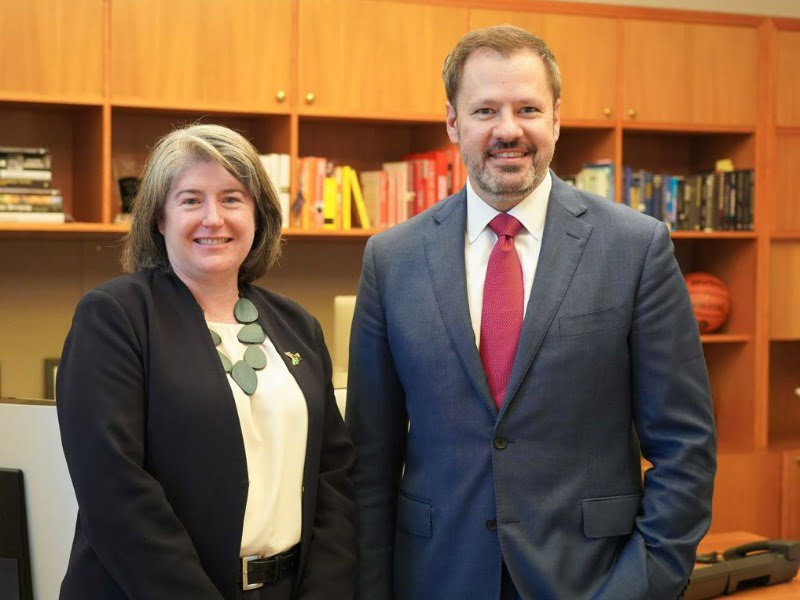Federal Industry minister Ed Husic will this week host five invitation-only industry roundtables to discuss challenges posed by skilled labour shortages ahead of Prime Minister Anthony Albanese’s Jobs and Skills Summit to be held at Parliament House in the first week of September.
Mr Husic will host two roundtables on Wednesday, one focused on Digital and Tech Skills and the other on Science and Commercialisation. He will host two on Thursday, with the first focused on Advanced Manufacturing and the other meeting with Industrial Unions.
A final roundtable is scheduled for Friday focused on Artificial Intelligence.
While each roundtable is expected to have around 30 participants, the Ministers office has not made its invitation list public.
The Industry and Science Minister’s focus on cross-industry skills shortages comes as reports on Sunday suggested government is readying a plan to lift the annual migration cap from its current ceiling of 160,000 to 180,000 or even 200,000 as a short to medium-term measure.

Mr Husic has also asked Australia’s Chief Scientist Dr Cathy Foley to raise jobs growth and skills development at her regular forums ahead of the September summit.
“Access to skilled labour is now one of the biggest challenges to Australia’s productivity and competitiveness,” Mr Husic said. “There is a shortage of skilled workers across most industries and it is essential that we meet the challenge of supplying the people our nation needs.
“At these roundtables industry leaders will be able to share their ideas, difficulties and aspirations on how the government can work with them to find solutions.”
He said discussion at the roundtables would include job opportunities in the industries of the future, the skills that would be in demand, as well as the challenges in attracting and retaining skilled workers.
Mr Husic has maintained since before the election that skills challenges would need to be addresses through a mix of investing in training Australians as a priority, with a skills migration helping to fill gaps.
“While the priority will be the education and training of the domestic workforce – for young Australians and for workers seeking new careers – managing appropriate skilled migration will also have an important role to play and will be on the agenda,” Mr Husic said.
“One of my priorities is on ‘brain regain’ – encouraging Australian researchers and innovators to return home. I am interested to hear ideas on how this can be best achieved,” he said.
“The Albanese Government aims to create a sense of national purpose in our industrial development, with governments, industry and researchers working together, supported by the Australian people.”
Skills and Training minister Brendan O’Connor told a press conference in Melbourne on Sunday that skilled migration would play an immediate role in addressing shortage, but would not put a number of the skilled migration cap.
“We also, of course, will rely upon temporary visa and permanent skilled migration paths. But it’s never been one or the other. It’s not a binary choice,” Mr O’Connor said.
“It is an investment in our labour market, our Australian workforce, to develop the skills that are in demand. And that is complemented by of course, temporary and permanent skilled migration,” he said.
Do you know more? Contact James Riley via Email.


I am affraid that it is not going to work. The intention is great but the execution is a disaster.
It would be better to used a methodology called OPEN SPACE TECHNOLOGY which is a group decision making process originated by Harrison Owen who states “that OST is effective where a diverse group of people must deal with complex and potentionally conflicting material in innovative and productive ways.”
Intention in this case is excellent but the methodology is flawed and a disarter in waiting.
It’s fairly simple – provide the training and education at no cost. A university degree or postgraduate qualification is crippling expensive and when you have a family it’s almost impossible to reskill. I can bet if they funnelled some of the money spent on these round table discussions into supported and fully paid courses with guaranteed jobs then there’d be lots of people wanting to get into them. The skills gap issues are then moved into another sector.
If advanced engineering is to be expanded and progressed, then government policy has to back specific and needed winners. This is anathema to university vice-chancellors. They continue to occupy the turf of “sandstones” versus the rest. This group (the Flintstones) are wanting to monopolise the future micro- credentialing market.